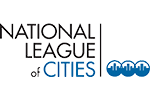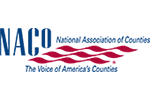
In 2014, Third Sector received $1.9 million from the Social Innovation Fund (SIF), which was a program of the Corporation for National and Community Service (CNCS), to help strengthen the pipeline of state and local governments and service providers prepared to implement Pay for Success projects.
On March 11th, 2015, Third Sector Capital Partners, Inc. announced the selection of nine awardees to receive technical assistance federally funded by SIF to assess the feasibility of implementing Pay for Success (PFS). Awardees (referred to as “Sub-Recipients”) demonstrated commitment to funding high-quality, effective social interventions that produce measurable outcomes in the areas of early childhood education and health, child welfare, teen pregnancy, and workforce development.
SIF Sub-Recipients:
Cohort 1
Austin/Travis County, TX
Orange County, CA
Commonwealth of Virginia
Nevada, Clark County, Las Vegas
Oregon Center for Evidence-Based Policy
Oregon Friends of the Children
Marion and Multnomah Counties, OR
Washington State
Year Up
Third Sector Capital Partners, Inc. is working with Austin/Travis County, TX, with leadership from the Austin/Travis County Health and Human Services Department, to focus on determining the feasibility of PFS for reducing teen pregnancies among Hispanic youth and improving birth outcomes among African Americans. The geography served will be the City of Austin and Travis County, TX. Measurable outcomes to be achieved with this engagement include a clearly defined target population(s) and analysis of available administrative data.
In addition, the engagement is conducting an intervention assessment and preliminary evaluability assessment to determine which issue area has the best viability for PFS. The intervention assessment focuses on the Peer-to-Peer (P2P) teen pregnancy prevention program Maternal Infant Outreach Program (MIOP).
The Children and Families Commission of Orange County, CA is receiving an accelerated Pay for Success technical assistance award from Third Sector Capital Partners, Inc. to assess their Bridges Maternal Child Health Network. Measurable outcomes to be achieved with this engagement include a full-scope feasibility study with the goal to provide several key deliverables: the creation of a PFS Contract Implementation Plan, an evaluability Assessment, a high-level Integrated Economic Model, the creation of Funder Interest Groups, and assessment of end-payers, particularly around Medicaid managed care organizations (MCOs).
Virginia PFS is receiving a developmental technical assistance award from Third Sector to explore PFS feasibility of prenatal home visiting programs with the potential to improve medical, social and educational outcomes for the Commonwealth of Virginia. The preliminary target population includes low-income Medicaid-qualifying pregnant women in Greater Richmond, South Hampton Roads, Northern Virginia, and Greater Roanoke who are Medicaid or FAMIS (Virginia’s health insurance program for children).
Measurable outcomes to be achieved with this engagement include a population data analysis and assessment to gain a better understanding of baseline outcomes within the target geographies; intervention evaluability assessment to clarify potential cost-benefits and justifications for end-payers; and end-payer financial assessment to determine if MCOs could serve as an end-payer).
The Commonwealth of Virginia’s engagement is innovative for several reasons: 1) Partnership between the private-sector led Virginia Pay for Success Council and the Virginia Department of Health; 2) Virginia’s Governor has placed significant importance on early childhood issues, innovation and established a Children’s Cabinet; and 3) Exploring having a Medicaid Managed Care Organization (MCO) serve as a potential end-payer (MCOs have yet to participate in PFS).
The State of Nevada, Clark County and the City of Las Vegas are receiving assistance from both the Harvard Kennedy School Government Performance Lab and Third Sector Capital Partners, Inc. to explore the use of Pay for Success in creating innovative strategies to improve social outcomes in early childhood education. Specifically, the three jurisdictions are engaged in a feasibility study that will explore how an early childhood education PFS project can increase outcomes such as kindergarten readiness and third grade literacy as well as reduce public school special education and remedial education expenditures. The PFS project targets Southern Nevada and will be a part of Nevada’s ongoing efforts to improve early childhood education opportunities state-wide.
The State of Nevada is the only Social Innovation Fund Subgrantee leading an innovative partnership between state, county and city government to address PFS contracting and savings analysis for early childhood education interventions, which has the potential to serve as a model nation-wide.
Third Sector is working with three entities within the state of Oregon in one combined intensive technical assistance award based on PFS projects that are geographically-focused in Oregon within the issue area of youth development and success, specifically early childhood and disengaged youth in the county and state justice systems.
The Oregon Center for Evidence-Based Policy is receiving technical assistance to advance an early childhood foster care avoidance PFS project for between two to four geographically diverse Oregon communities with high foster care entry rates. The Center has also agreed to take on a lead coordinator role with Third Sector’s two other Oregon awardees.
Third Sector will work with three entities within the state of Oregon in one combined intensive technical assistance award based on PFS projects that are geographically-focused in Oregon within the issue area of youth development and success, specifically early childhood and disengaged youth in the county and state justice systems.
Third Sector is working with Friends of the Children (FOTC) to conduct PFS feasibility to scale up its national evidence-based intervention in Oregon for youth identified at age 5 as “high risk” or already experiencing poor academic and social well-being outcomes.
Third Sector is working with three entities within the state of Oregon in one combined intensive technical assistance award based on PFS projects that are geographically-focused in Oregon within the issue area of youth development and success, specifically early childhood and disengaged youth in the county and state justice systems.
Third Sector is working with Marion and Multnomah Counties to conduct PFS feasibility in partnership with the national nonprofit Youth Villages and its Intercept program, with the goal of reducing crime and systems involvement for youth ages 10-18 assessed at medium or high risk of committing further delinquent acts in the next 12 months and at-risk of placement in a youth correctional facility at the Oregon Youth Authority.
Marion and Multnomah Counties demonstrate an innovative partnership between two county-level governments and the state Oregon Youth Authority, offer unique urban and rural contexts for demonstration sites, and also create an opportunity to work with Youth Villages, a national evidence-based nonprofit with ability to scale interventions.
The Institute for Child Success and Third Sector Capital Partners, Inc. are collaborating to provide a joint cohort-based model of technical assistance for Washington State’s Department of Early Learning (DEL) and Thrive Washington. The DEL seeks to expand programs that enhance child development and well-being, reduce child abuse and neglect, and promote school readiness. To that end, the Department sought out Pay for Success (PFS) technical assistance to conduct a feasibility study focused on scaling Home Visiting programs across the state such that a higher number of at-risk families could be served. The study will assess which outcomes could potentially generate the most cost savings, where the savings is most likely to be realized, the cost of scaling, the landscape of potential philanthropic and private sector investment, legislative and advocacy support, and how best to develop a blueprint for the next steps in implementation.
Year Up has received a developmental technical assistance award from Third Sector to explore the PFS feasibility of the Professional Training Corps (PTC) Model for workforce development. The PTC Model is an intensive one-year program for young adults, aged 18 to 24, who have a high school diploma or GED. PTC participants spend six months learning technical and professional skills in the classroom and then apply those skills during six-month internships at one of Year Up’s 250 employer partners. The target population may include Opportunity Youth aged 18-24 who are disconnected from school and work. The primary proposed geographic location for the PFS project is Washington State. Other potential and additional areas of exploration are Santa Clara County, CA, the Commonwealth of Massachusetts and Rhode Island.
As an established organization in multiple jurisdictions, Year Up presents an opportunity for a provider to scale nationally through PFS.
SIF Award Partners




Third Sector has partnered with leading national organizations that assist in developing our competition, conducting outreach efforts, sharing lessons learned and delivering services to Sub-Recipients.
America Forward is a national non-partisan policy initiative, spearheaded by the nonprofit social innovation organization and venture philanthropy fund New Profit, Inc. We unite national policymakers with innovators who lead high-impact and results-driven organizations, to advance a public policy agenda that champions innovative and effective solutions to our country’s most pressing social problems.
Abt Associates is a mission-driven, global leader in research and program implementation in the fields of health, social and environmental policy, and international development. Known for its rigorous approach to solving complex challenges, Abt Associates is regularly ranked as one of the top 20 global research firms and one of the top 40 international development innovators. The company has multiple offices in the U.S. and program offices in more than 40 countries.
The National League of Cities (NLC) is dedicated to helping city leaders build better communities. NLC is a resource and advocate for 19,000 cities, towns and villages, representing more than 218 million Americans. The Institute for Youth, Education, and Families, an action tank within NLC, helps municipal leaders take action on behalf of the children, youth, and families in their communities.
The National Association of Counties (NACo) is the only national organization that represents county governments in the United States. Founded in 1935, NACo assists America’s 3,069 counties in pursuing excellence in public service to produce healthy, vibrant, safe and resilient counties. NACo promotes sound public policies, fosters county solutions and innovation, promotes intergovernmental and public-private collaboration and provides value-added services to save counties and taxpayers money.
SIF Competition 2: Workforce Development
View our second cohort of SIF Sub-Recipients
Corporation for National and Community Service
Launched in 2014, the SIF Pay for Success (PFS) program was designed to help cities, states, and nonprofits develop Pay for Success projects where governments pay service providers only when there are demonstrable results.
SIF selected grantees to implement projects in one of two approaches: 1) Provide Technical Assistance to Assess Feasibility and Develop PFS Capacity or 2) Structure PFS Transactions. Third Sector was awarded $1.9 million to do the former.
